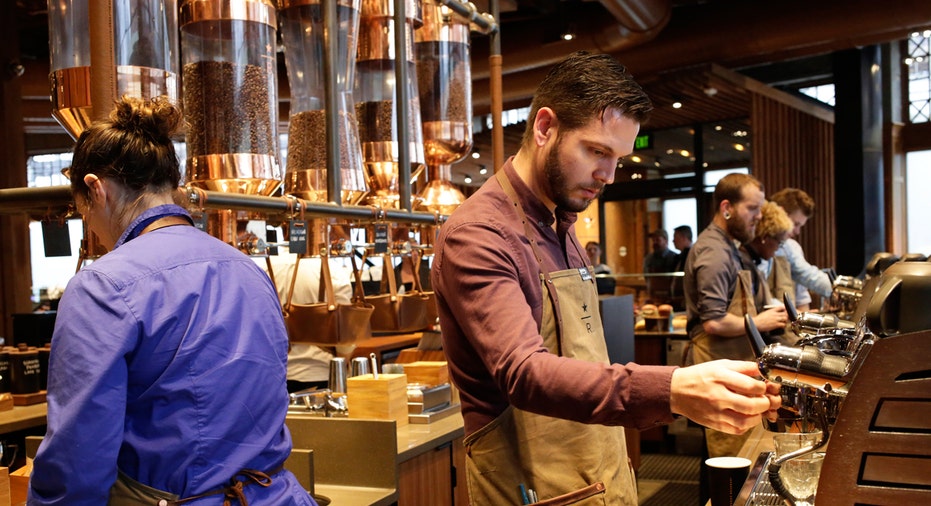The Myth of the College Grad Barista

“Millennial College Graduates: Young, Educated, Jobless,” reads a Newsweek headline.
“The Youth Recession: The New Normal for Young Workers,” is another headline in The Atlantic magazine. “Why Skills Are Not Enough to Land a Job,” blares a recent story from The Nation, decrying a new normal of “baristas with BAs.”
However, it’s an urban myth that college grads are stuck in jobs working as Starbucks (NASDAQ:SBUX) baristas, says new analysis from the New York Federal Reserve.
“While there is some truth behind the popular image of the college-educated barista, this portrayal is really more myth than reality,” say New York Federal Reserve researchers Jaison R. Abel and Richard Deitz.
Yes, many college graduates are working at jobs that don’t require the degrees they paid for, meaning, underemployed.
But the Fed researchers found “that only a small fraction worked in a low-skilled service job in the years following the Great Recession.” Instead, the analysts found that “many of those who started their careers in a low-skilled service job transitioned to a better job after gaining some experience in the labor market.”
It’s been true for years now that the more education a person has, the less likely they are to be unemployed or even underemployed. About 2.5% of college graduates are unemployed versus 5.6% of those who have only a high school diploma, and 6.7% for those with no schooling, according to the latest data from the Bureau of Labor Statistics.
Looking at survey data from 2009 to 2013 of underemployed college graduates—those aged 22 to 27 with at least a bachelor’s degree--the Federal Reserve researchers found that, of the underemployed college graduates “nearly half were working in relatively high-paying jobs,” in information processing and business support, as managers and supervisors, or in sales.
A quarter of them worked in office and administrative support, paying around $78,500 annually, whereas roughly one-fifth of underemployed college graduates—or about 9% of all recent graduates—worked in a low-skilled service job.
Of course, the low-skilled service category—which includes waiters and waitresses, cashiers, bartenders, cooks, and, of course, baristas—stands out as the worst set of jobs, paying around minimum wage, the researchers note.
Not surprisingly, underemployed college graduates “were much more likely to be working in higher paying jobs than those without a college degree,” they found. Cognitive skills and decision making comes with college degrees, which employers clearly value. “Only 18 percent of young workers without degrees held these types of jobs,” the Fed researchers found.
On the flip side, “more than half of those without a college degree were working in the low-paying physical laborers and low-skilled service occupation groups, double the share for recent college graduates,” the researchers say, adding, “underemployed recent college graduates tend to earn more than similarly aged young workers without a college degree within each occupation category. So it appears that a college degree confers significant economic benefits on many graduates, even on those who find themselves underemployed at the start of their careers."
Moreover, many underemployed college graduates eventually find better jobs.“Underemployment typically falls as new graduates spend time in the labor market, a pattern that has held for decades,” the Fed researchers found. “The good news is that while the demand for college-educated workers stagnated following the Great Recession, it has picked up in recent months—a trend that should provide more opportunities for college graduates to find good jobs going forward.”